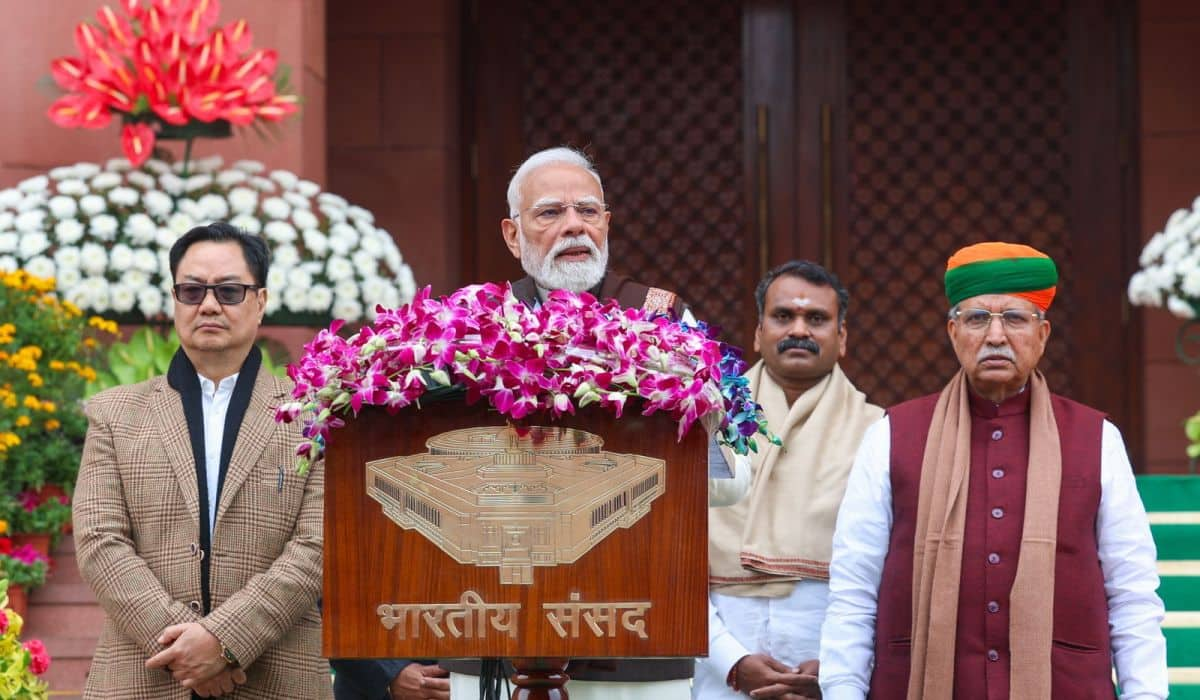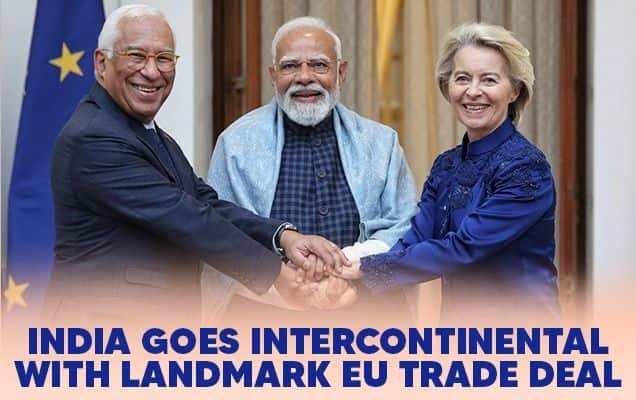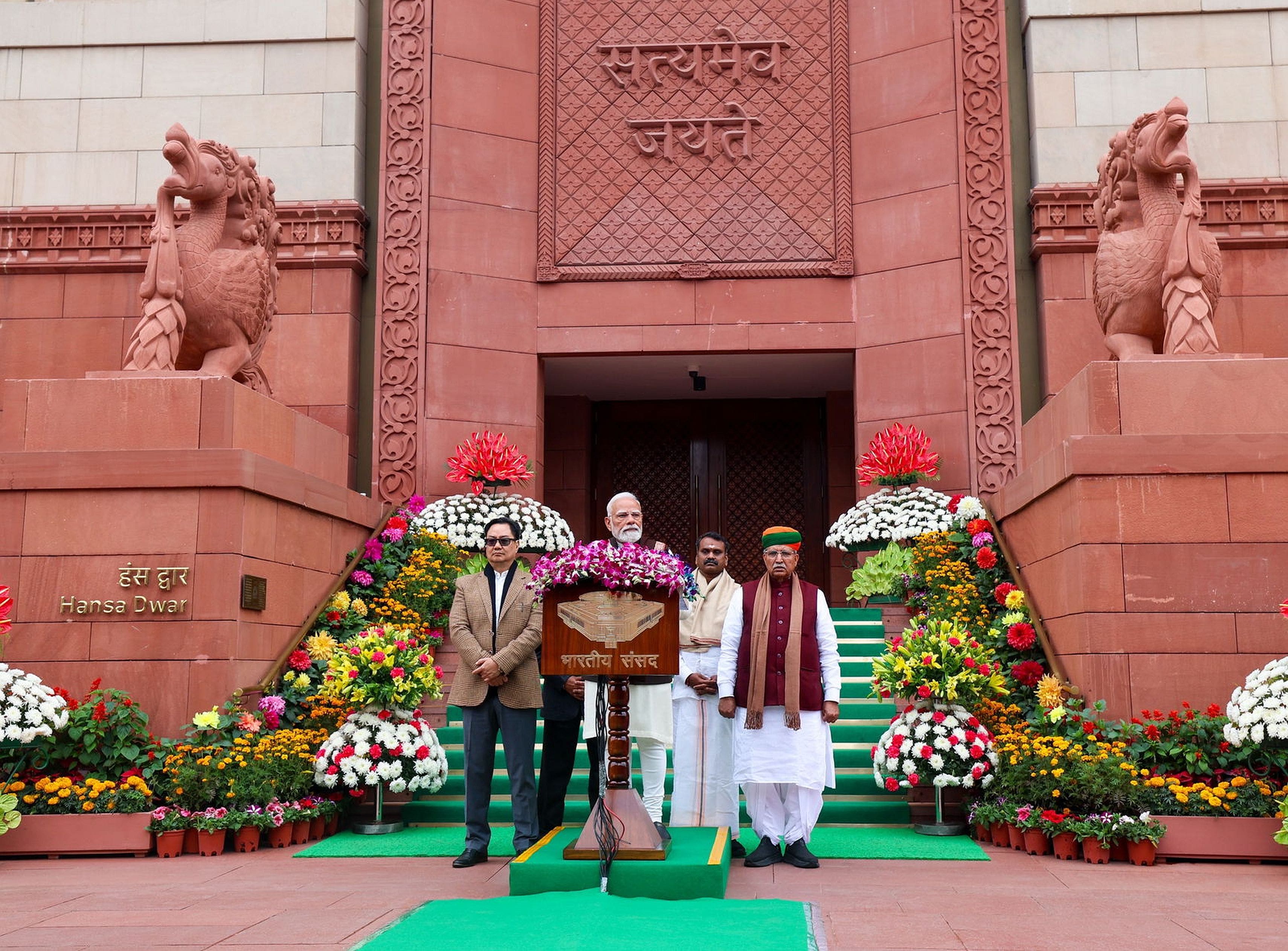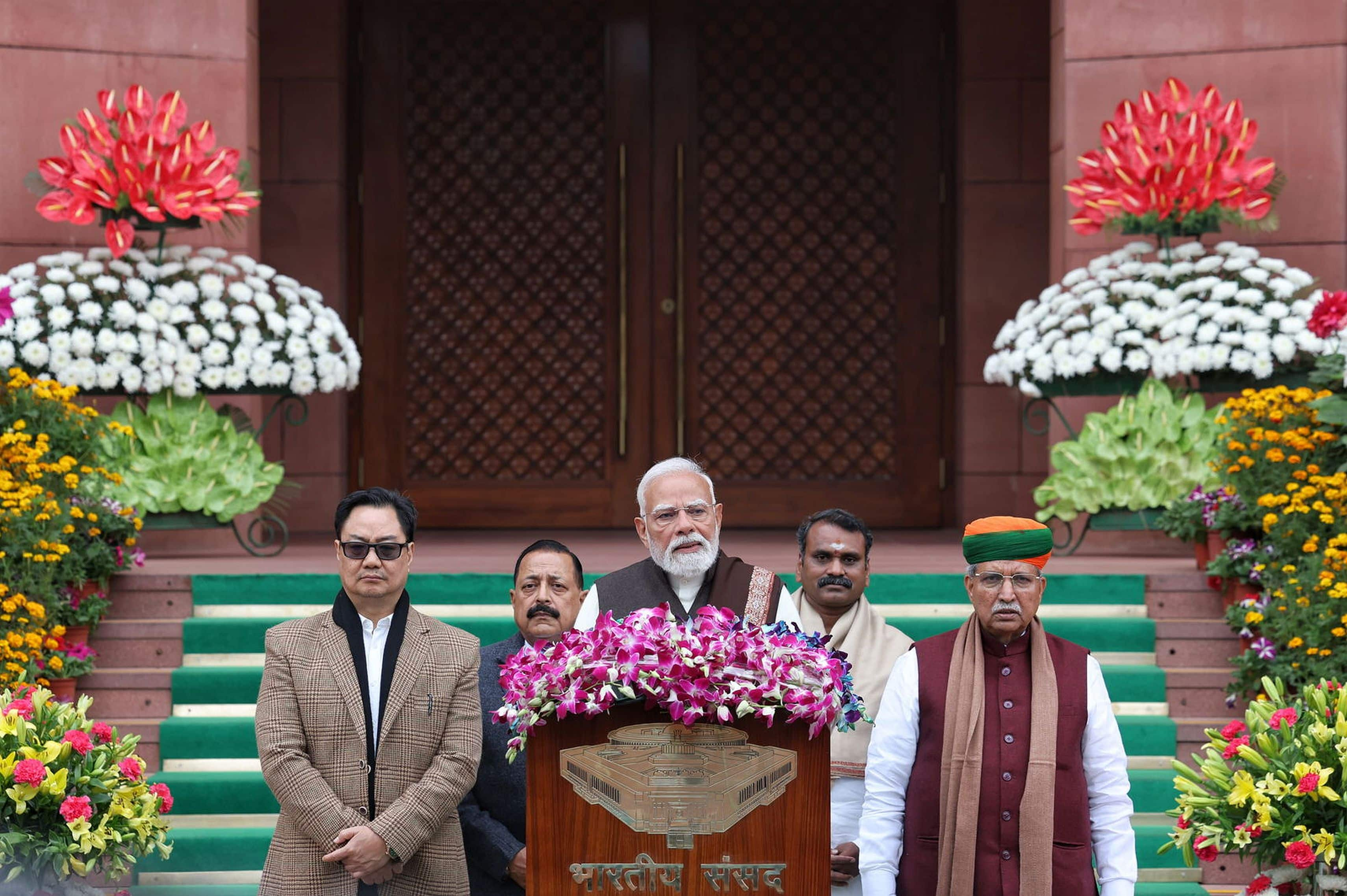Prime Minister: What are the benefits of maintaining cleanliness?
Student: Sir, it helps prevent diseases, and we will always remain clean. Moreover, if our country stays clean, people will understand the importance of keeping the environment tidy.
Prime Minister: What happens if there is no toilet?
Student: Sir, diseases spread.
Prime Minister: Indeed, diseases spread. Reflect on the past when toilets were scarce, 60 out of 100 households did not have them. People would resort to open defecation, which became a major cause of illnesses. Women, particularly mothers, sisters, and daughters, suffered the most. Since the launch of the Swachh Bharat Abhiyan, we first ensured toilets were built in schools, with separate facilities for girls. As a result, the dropout rate of girls has significantly reduced, and they are now continuing their education. So, has cleanliness not proven to be beneficial?
Student: Yes, Sir.
Prime Minister: Whose birth anniversaries are we commemorating today?
Student: Gandhi ji’s and Lal Bahadur Shastri’s, Sir.
Prime Minister: Alright, do any of you practise yoga?... Oh, wonderful, so many of you do. What are the benefits of practising asanas?
Student: Sir, it makes our bodies more flexible.
Prime Minister: Flexibility, and?
Student: Sir, it also helps in preventing diseases and promotes good blood circulation.
Prime Minister: Good. Now, what do you like to eat at home? When your mother asks you to eat vegetables and drink milk, how many of you resist or argue about it?
Student: We eat all vegetables.
Prime Minister: Does everyone eat all vegetables, including bitter gourd?
Student: Yes, except bitter gourd.
Prime Minister: Ah, except bitter gourd.
Prime Minister: Do you know what the Sukanya Samriddhi Yojana is?
Student: Yes, Sir.
Prime Minister: What is it?
Student: Sir, it is a scheme introduced by you, which is benefiting many girls. We can open an account under this scheme up until the age of 10. When we turn 18, it helps us a lot with our education. We can withdraw money from this account.
Prime Minister: Exactly. The Sukanya Samriddhi Account can be opened as soon as a girl is born. The parents can deposit Rs. 1,000 each year, which equates to about Rs. 80-90 per month. Suppose, after 18 years, she needs money for higher education—half of the amount can be withdrawn for that purpose. And, if she is getting married at 21, money can also be withdrawn for that purpose. If Rs. 1,000 is regularly deposited, at the time of withdrawal, she will receive around Rs. 50,000, with about Rs. 30,000-35,000 as interest. The interest rate for daughters is 8.2%, which is higher than the normal rate.
Student: There is a chart that suggests we should clean the school, and it shows children engaged in cleaning.
Prime Minister: Once, I was in Gujarat, and there was a teacher at a school who did something remarkable. The school was located in a coastal area, where the water was salty, and the land was barren, with no trees or greenery. What did the teacher do? He gave each student an empty Bisleri bottle and used oil cans, which he had cleaned. He instructed the children to collect the water their mothers used to wash dishes after meals and bring it to school in those bottles every day. He assigned each child a tree and told them the water they brought from home would be used to nurture their tree. When I visited the school 5-6 years later, the entire school was flourishing with greenery beyond what anyone could have imagined.
Student: This is dry waste. If we separate dry and wet waste like this, it helps in making compost.
Prime Minister: So, do you all follow this practice at home?
Prime Minister: When your mother goes to buy vegetables and leaves empty-handed, does she bring them back in a plastic bag? Do any of you argue with her, saying, "Mum, take a bag from home. Why do you bring plastic home? Why bring such waste into the house?" Do any of you remind her of this?
Student: (Yes, we encourage them to carry )Cloth bags, Sir.
Prime Minister: So you do tell them?
Student: Yes, Sir.
Prime Minister: Alright then.
Prime Minister: What is this? These are Gandhiji’s glasses, and do you think Gandhiji is watching whether you are maintaining cleanliness or not? You must remember, Gandhiji dedicated his entire life to cleanliness. He is always observing who keeps things clean and who does not. He once said that if he had to choose between freedom and cleanliness, he would choose cleanliness. This shows how much importance he placed on cleanliness, even above freedom. Now, tell me, should our cleanliness campaign continue to move forward?
Student: Yes sir, we should take it forward.
Prime Minister: So, do you think cleanliness should merely be a programme or should it become a habit?
Student: It should become a habit.
Prime Minister: Well done. Some people believe that this cleanliness drive is Modiji’s programme, but the truth is that cleanliness is not a one-day task, nor is it the responsibility of just one person or one family. It is a lifelong commitment—365 days a year, for as long as we live. What do we need for this? We need a mindset, a mantra. Imagine if every citizen in the country decided not to create litter. What would happen?
Student: Then cleanliness would be established.
Prime Minister: Exactly. So, what habit must you develop now? The habit of not littering—this is the first step. Understood?
Student: Yes, Sir.















